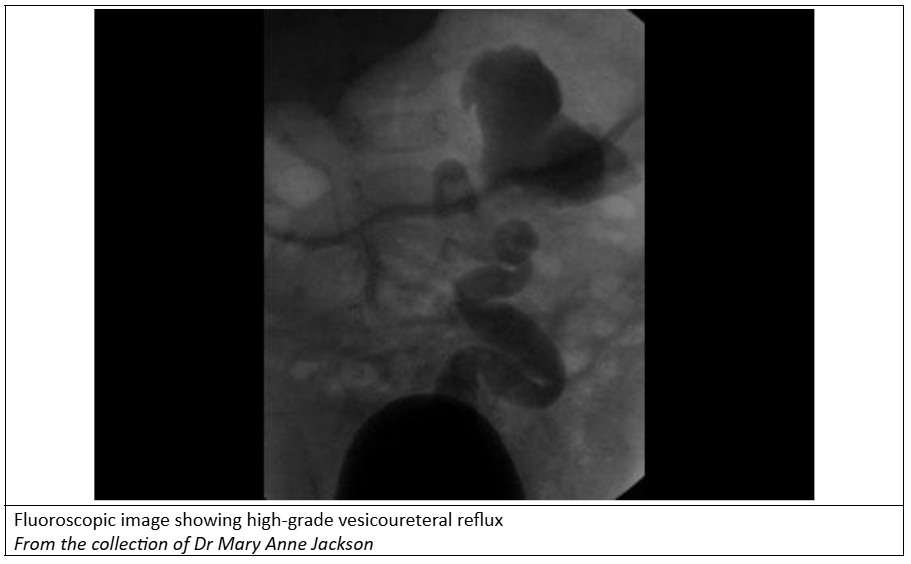Summary
Urinary tract infections (UTIs) are common in children and can affect the bladder (cystitis) or kidneys (pyelonephritis). Symptoms vary by age:
- Infants and young children may have fever, irritability, poor feeding, vomiting, or foul-smelling urine.
- Older children may experience painful urination (dysuria), frequent urination, urgency, or abdominal pain with a bladder infection. A kidney infection may cause fever, back pain, nausea, or vomiting.
If left untreated, recurrent UTIs can lead to kidney damage (renal scarring), which may affect long-term kidney function.
Diagnosis and When to Seek Help
A UTI is diagnosed by testing a properly collected urine sample, which can confirm infection and identify the bacteria causing it. A urine culture helps determine the most effective antibiotic.
Parents should seek medical attention if their child has:
- Fever without a clear cause (especially in infants)
- Pain or burning during urination
- Frequent or urgent need to urinate
- Foul-smelling or cloudy urine
- Back or side pain, fever, and vomiting (signs of a kidney infection)
Children with recurrent UTIs may need additional testing to check for structural or functional urinary tract problems that increase the risk of infection.
Management
- Antibiotics: UTIs are treated with a short course of antibiotics (typically 3–7 days for bladder infections and 7–14 days for kidney infections). The choice of antibiotic depends on the urine culture results.
- Pain relief: Drinking plenty of fluids and using paracetamol or ibuprofen can help with discomfort.
- Further evaluation: Children with recurrent or severe UTIs may need imaging tests (e.g., ultrasound) to check for kidney or bladder abnormalities.
Follow-Up and Monitoring
Most children recover fully within a few days of starting antibiotics. It’s important to:
- Ensure the child completes the full antibiotic course
- Follow up with the doctor if symptoms persist or worsen
- Prevent future UTIs by encouraging regular urination, good hygiene, and staying hydrated
If your child has had multiple UTIs, further medical evaluation can help prevent long-term kidney problems.

History and Exam
Key diagnostic factor
- Presence of risk factors
- Fever >39*C (>102.2*F)
- Irritability (neonates and infants)
Other diagnostic factors
- Foul-smelling urine (infants, older children, and adolescents)
- Dysuria (preschool age, older children, and adolescents)
- Urinary frequency (older children and adolescents)
- Abdominal/flank pain (infants, older children and adolescents)
Risk factors
- Age <1 year
- Female sex
- Uncircumcised boys in the first year of life
- Previous UTI
Diagnostic Investigations
1st investigations to order
- Urine dipstick
- Urine microscopy
- Urine culture
Investigations to consider
- Urine flow cytometry
- Blood culture
- Full blood count
- Inflammatory markers
Emerging tests
- Head and neck 3- dimensional CT
- Head and neck MRI

